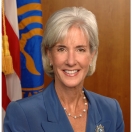
Keeping track of huge piles of paperwork is not an easy task for anyone. Imagine doing that for our entire health care system. In effect, that is what is going on with our current paper and pencil system of medical record keeping -- until now.
At the Department of Health and Human Services, part of our mission is to ensure quality health care for all Americans. And today I am excited to announce that we are delivering on this in the form of over $750 million in new grants that are part of a federal initiative to build capacity to enable widespread meaningful use of health IT, helping doctors adopt electronic medical records.
As part of the Recovery Act, the legislation President Obama signed into law last year to help strengthen the economy, these grants benefit both patients and doctors by cutting costs, eliminating paperwork, and helping doctors deliver high-quality, coordinated care. They also help eliminate errors that come with having a paper and pencil system and save patients from having to fill out the same form dozens of times.
You can find examples of this from across the country. At one health system, they used electronic health records to identify older women who hadn’t received an osteoporosis screening and mail them personal letters encouraging them to get screened. Screenings went up 300%.
At another health system, only a third of their diabetes patients were receiving the recommended foot and eye exams. They started tracking these patients using electronic health records, and within five months, the share of patients getting the recommended exams doubled to around two out of three.
Yet despite all these benefits, only 20 percent of doctors and 10 percent of hospitals have even basic electronic health records today. That’s because even though many doctors around the country can see the potential benefits, there are also obstacles.
That’s where these grants come in. We want to spread the benefits of health information technology to our entire health care system. Led by our National Coordinator for Health IT, Dr. David Blumenthal, our grants team has identified major areas where we can begin to implement new technology to make delivering health care more efficient and more effective. Read Dr. Blumenthal’s blog about it here.
Electronic health records will provide major technological innovation to our current health care system by allowing doctors to work together to make sure patients get the right care at the right time and want to be clear that in all our Health IT investments, patient privacy is our top priority.
Kathleen Sebelius is Secretary of Health and Human Services


